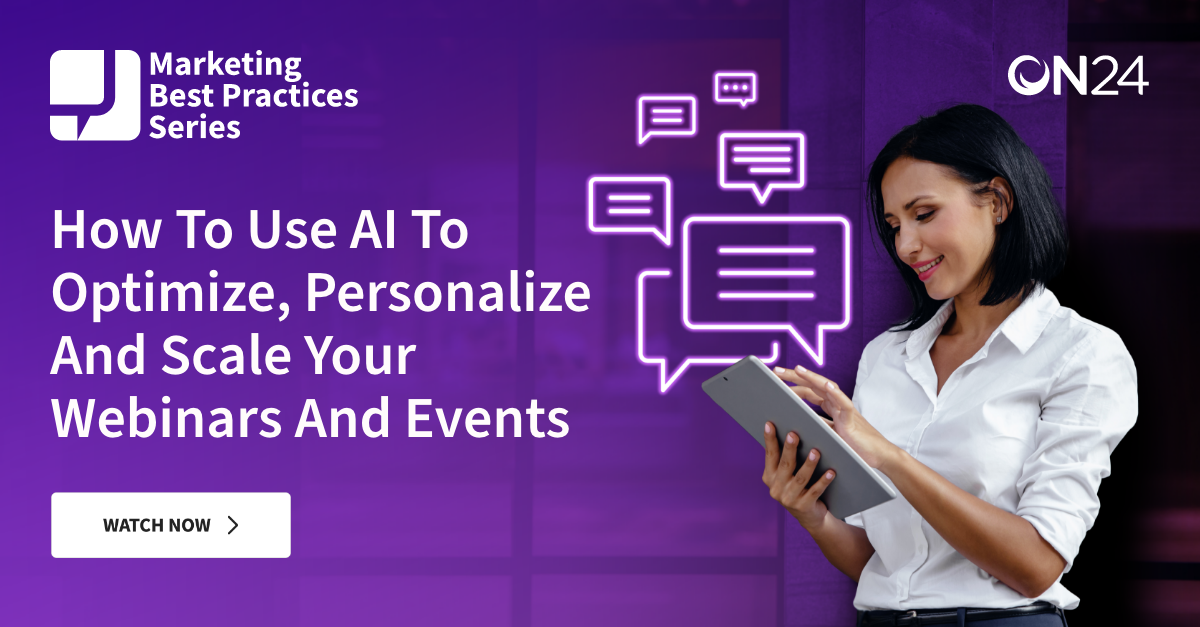Every business, from human resources and accounting to sales and customer support, is wrestling with artificial intelligence technology’s emergence and rapid growth. AI is an immensely useful tool, and it’s perhaps most useful in the marketing department.
That’s because AI marketing strategies can help teams to easily scale their content, drive personalization and overall help improve marketing results. But to realize these results, marketing teams will need to think about how they deploy AI within their organization.
So, what’s a busy marketer to do? Here’s everything you need to know about how to create an AI marketing strategy of your own.
What is AI Marketing?

AI marketing refers to using AI technology to improve, automate, or streamline marketing campaigns. AI can be applied in diverse ways throughout the standard marketing process, supporting marketers as they research, create content, analyze data and more.
Why Do You Need an AI Marketing Strategy?
AI can help you maximize marketing ROI by reducing the amount of human input required while strengthening the output of marketing activities.
It provides a competitive edge, making sophisticated marketing strategies easier to plan, create and deploy. Integrating AI into your marketing strategy can help make it more efficient, engaging and effective.
Key Elements of an AI Marketing Strategy

The versatility of AI technology — one of its key strengths — means it can be applied in various ways to improve marketing strategies.
While the potential for integrating AI into the marketing process is practically limitless, these are some of the most common elements of AI marketing strategies:
-
- Content creation and optimization: Generative AI chatbots built on powerful large language models (LLMs) can create content from scratch and provide flexible support during the content creation process. This reduces the time and effort it takes to create or optimize marketing content.
- Data collection and analysis: AI models can absorb, analyze and interpret vast, complicated datasets and automatically generate critical insights. These insights can guide marketing strategy, helping marketers find new ways to reach, engage and convert their audience.
- Marketing automation: AI tools can automate specific parts of the marketing process, including audience segmentation, content repurposing, and marketing personalization. This allows marketers to roll out more sophisticated campaigns without significantly increasing the input required.
Designing Your AI Marketing Strategy
There are countless ways of integrating AI into your marketing strategy, so planning your approach before you start is important to ensure you stay on track. These are the key steps to take when you’re designing an AI marketing strategy:
Setting Clear Objectives
Like any other marketing strategy, your first task when creating an AI marketing strategy is deciding what you’re trying to achieve. Set clear, measurable and realistic objectives that you can track your performance against so that you can assess how successful your campaign is.
Identifying Target Audiences
Marketing strategies are most successful when tailored to specific target audiences. To get the most from AI, you’ll first need to identify your audience and create distinct segments to target each subgroup effectively.
Various AI tools can help in this process, identifying shared demographic or behavioral traits that can be used to create cohesive audience segments.
Selecting AI Technologies
Finally, before you can start integrating AI into your marketing strategy, you’ll need to select specific AI technologies to use. There are diverse options, from dedicated AI marketing platforms to highly versatile AI chatbots.
The marketing objectives you decided on will help narrow down the choices. But you should also factor in where your internal resources are lacking and what specific marketing activities your business struggles with most as you choose an AI tool.
Implementing Your AI Marketing Strategy

With the planning and preparation out of the way, you can move on to the practical stage, implementing your AI marketing strategy step by step. These are some of the most useful ways to integrate AI into your marketing campaign:
Data Integration and Management
You can use AI to analyze audience data and provide marketing insights, but you’ll need a plan for how to collect and store the data. You’ll likely already have sources that you collect data from, but to make the most use of it in your AI strategy, you need to collate it all in one place.
A customer relationship management (CRM) platform can fill this role, and many modern CRMs even allow for direct AI integration. Set up correctly, this approach will give you a single, tidy repository of real-time data automatically analyzed for critical insights.
Tool and Technology Implementation
Certain AI tools can be integrated directly into your marketing workflow rather than sitting outside of it like an AI chatbot would. This level of integration maximizes AI’s usefulness, ensuring it has access to all of the data and assets it needs to make a meaningful impact.
ON24’s generative AI engine, for example, is an embedded part of the wider platform and therefore fits seamlessly into the marketing workflow. It can automatically generate derivative content from webinars, provide critical audience engagement insights, and even act as a live Q&A moderator during sessions.
Content Creation and Optimization
Content creation and optimization are two of the most prominent current use cases for AI in marketing for good reason. AI content marketing tools can automate the content creation process by generating blog posts, newsletters, social media posts and more in a fraction of the time it’d take a human.
This capability can be used to entirely automate content creation at scale or as a part of a larger content creation process with human oversight. You could use AI to create content briefs for your marketing team to complete or to proofread existing content drafts, for instance.
Marketing Automation Workflows
Automating parts of the marketing process can help ensure it runs smoothly at all times while reducing the time your marketing team has to spend on certain activities. And using AI is one of the quickest and easiest ways to achieve marketing automation.
You can use it in various ways, from automating audience segmentation based on pre-set demographic categories to automating e-commerce cart abandonment emails to reactivate lapsed customers.
Testing and Experimentation
Implementing AI in your marketing strategy doesn’t guarantee success, which is why it’s just as important to test different approaches to an AI-powered marketing strategy as it is with a regular one.
Using techniques like A/B testing, you can compare AI marketing assets like landing pages against human-written alternatives and see which ones come out on top. Then, based on the results, you can further optimize the winning landing page to continue to improve its performance.
Over time, this process of experimentation will help you identify where AI has the biggest impact on your marketing results, meaning you can get the most from the technology.
Reporting and Performance Evaluation
A robust reporting process is a must in any marketing campaign, ensuring that you can gather relevant data and learn from both your mistakes and successes. This is true for AI marketing strategies, too.
It’s especially important as you leap into integrating AI into your marketing in the first place. Measuring how much of an impact AI has had on your results will help you understand how you can improve your approach in the future.
Measuring AI Marketing Strategy Success

As you assess the impact of integrating AI into your marketing strategy, there are some key marketing metrics to keep an eye on. The most valuable include:
-
- Conversions: Measuring the bottom line through conversions generated is the most important reporting consideration. This will tell you whether AI ultimately adds value to your marketing strategy.
- Visibility: Visibility, measured through total impressions on whatever marketing channels you focus on, is a great indicator of how effective your outbound marketing strategy is. Measuring it will reveal whether your AI strategy impacts how many people see your brand.
- Input: The ability to reduce how much time and effort it takes marketers to plan and roll out marketing strategies is one of AI’s key strengths. Tracking the amount of input, in hours, you’re spending as a business on marketing can show whether AI is freeing up a significant amount of time.
Of course, simply measuring these metrics and others isn’t enough. To get anything out of the reporting process, it’s important to schedule regular reviews to identify the biggest insights and make tweaks to your strategy.
Create Your AI Marketing Strategy Now

AI is in the process of transforming how marketing works. And, as the underlying technology develops, it’ll only get more powerful.
If you’re keen to get the benefits of AI in your marketing process, now and long into the future, start developing your strategy today with the ON24 generative AI engine.


